Princeton Essays in Literature32
-
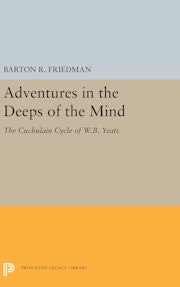
Barton Freidman demonstrates that, as a cycle, the Cuchulain plays form a paradigm of Yeats's dramatic career. They trace his progress, the author contends, toward finding a genuine dramatic mode, and examination of this process reveals...
-
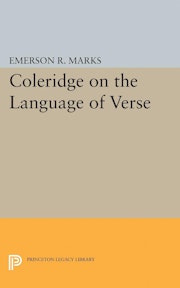
Drawing on the entire corpus of Coleridge's prose, Emerson Marks shows how the poet's rationale was grounded in the mimetic theory that informed his distinction between a copy and an imitation which Coleridge himself labeled the...
-
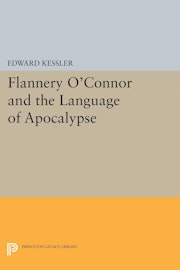
Seeing Flannery O'Connor in the company of poets, rather than realistic prose writers, this work shows how she uses recurring figures of speech to transform or re-create the external world.
Originally published in 1986. -
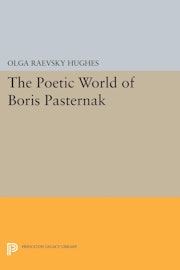
The dramatic political struggle of Boris Pasternak and the continued success of his novel. Dr. Zhivago, have often taken center stage in discussions of this writer. Olga Raevsky Hughes chooses instead to focus on the aesthetics...
-
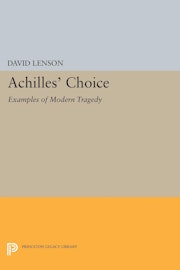
Why, during the last two hundred years, when critical achievement in the field of tragedy has been outstanding, has there been little creative practice? David Lenson examines the work of various writers not ordinarily placed in the...
-
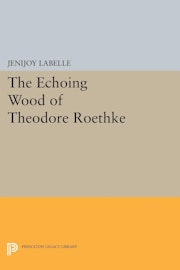
A poet's tradition provides him with a sense of community that may be regarded as a necessary condition for poetry. Jenijoy La Belle, who studied with Roethke, here describes the cultural tradition that he defined and created for...
-
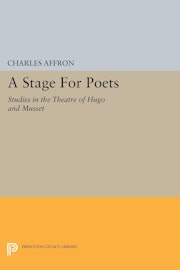
In the nineteenth century, the French lyric poets imposed their diction on the theatrical genre and thus illuminated the essence of both poetry and theatre. Ten plays by Victor Hugo, the standard-bearer of the French romantic theatre...
-
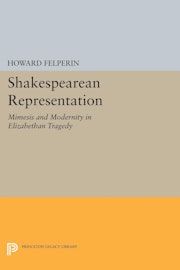
We are often told that Shakespeare is our contemporary, yet we insist just as often on the Elizabethan quality of his work as it reflects a culture remote from our own. Beginning with this paradox, Howard Felperin explores the question...
-
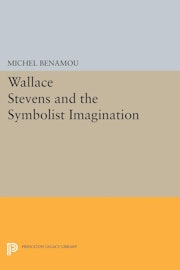
Michel Benamou's essays have established his reputation as a critical interpreter of Stevens' relation to the French poetic tradition. Mr. Benamou has now collected these essays in one volume, revising and expanding them, and has added...
-
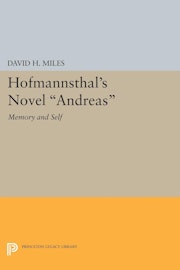
Although Hofmannsthal never completed his only novel Andreas, its theme—the quest for self through memory—haunted the Viennese writer and recurs again and again in his poems, libretti, and essays. Analyzing the fragment, David Miles...
-
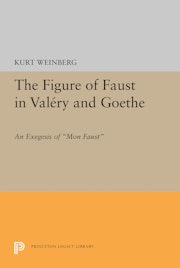
This book interprets Mon Faust and explores the differences between Valéry's and Goethe's treatments of the Faust figure. The author shows by close analysis how Valéry opposes a Cartesian, anti-Pascalian Faust to Goethe's romantically...
-
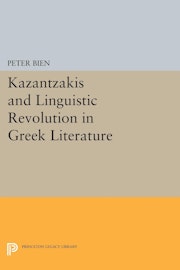
Peter Bien focuses on Kazantzakis' obsession with the demotic, the language "on the lips of the people," showing how it governed his writing, his ambition, and his involvement in Greek politics and educational reform. Kazantzakis'...
-
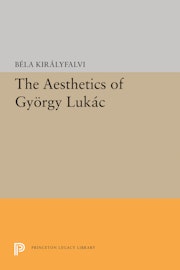
This book-length treatment of György Lukács' major achievement, his Marxist aesthetic theories. Working from the thirty-one volumes of Lukács' works and twelve separately published essays, speeches, and interviews, Bela Kiralyfalvi...
-
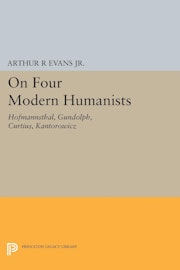
Five experts present their viewpoints on four of the most important figures in recent intellectual and cultural history. Professor Egon Schwarz evaluates Hofmannsthal as a critic; Professors C. V. Bock and Lother Helbing combine forces...
-
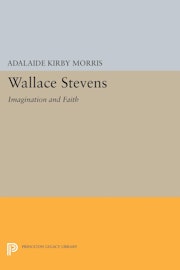
The search for a substitute for religion, Adalaide Kirby Morris argues, occupies Stevens' poetic energy from his earliest to his latest work. It emerges in his patterns of speech, in his symbols, and in his poetic forms; it encompasses...
-
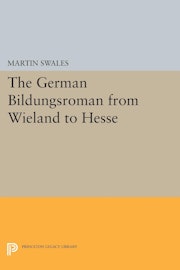
Although some of the most distinguished German novels written since about 1770 are generally considered to be Bildungsromane, the term Bildungsroman is all too frequently used in English without an awareness of the tradition from which...
-
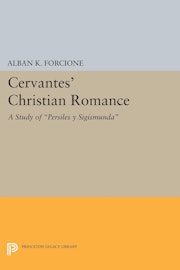
Alban Forcione analyzes the problem which has most troubled modern readers of the Persiles, its episodic character and confusing proliferation of action. Examining closely the structure of the romance Cervantes considered his...
-
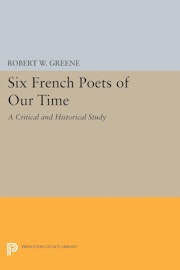
During the last sixty to seventy years avant-garde poetry in France has evolved in two directions: one toward poetry conceived as a means to an end, the other toward poetry as an end in itself. Focusing on Pierre Reverdy, Francis Ponge...
-
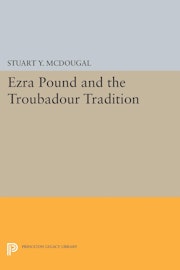
The world of the troubadours of medieval Provence—of Bertran de Born, Arnaut de Mareuil, and Peire Bremon lo Tort—always fascinated Ezra Pound and, as Stuart McDougal shows, provided both themes and techniques for his early...
-
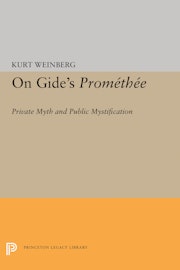
Through a careful rendering of the text, deciphering its hidden ironies, Mr. Weinberg sees Prométhée as a modern allegory, a parable wrought of allusions, symbols, and images drawn from classical antiquity and calvinist theology, and...
-
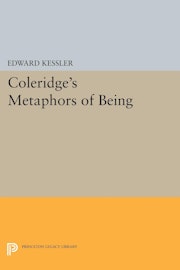
In an original and provocative demonstration that Coleridge's later poetry took on a powerful metaphysical conception, Edward Kessler emphasizes Coleridge's struggle with language as a means of both expressing and creating Being. While...
-
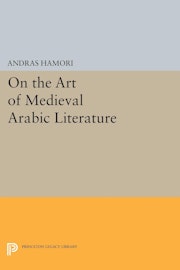
In applying the standards of modern literary criticism to medieval Arabic literature, Andras Hamori concentrates on those aspects of the literature that appear most alien to modern Western taste: the limitation of themes, the...
-
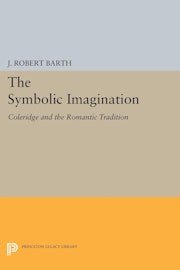
Studying the nature of symbol in Coleridge's work, Father Barth shows that it is central to Coleridge's intellectual endeavor in poetry and criticism as well as in philosophy and theology. He finds symbol to be an essentially religious...
-
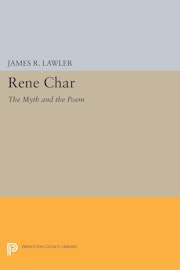
Although René Char's distinctive voice has brought him to the forefront of contemporary French writers; his complex poetry has remained virtually inaccessible to the general reader. In this book an eminent authority on French...
-
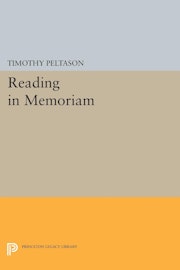
By making his argument about In Memoriam a continuous argument for it, Timothy Peltason brings to light a wider appreciation of its greatness and of its central place in the history of modern poetry.
Originally published in 1986. -
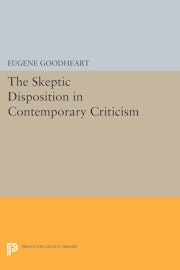
Eugene Goodheart's remarkably compact and penetrating analysis examines the skeptic disposition that has informed advanced literary discourse over the past generation.
Originally published in 1985. -
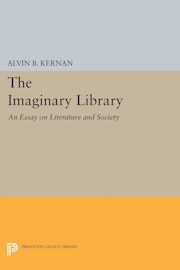
In this speculative treatment of literature as a social institution, Alvin B. Kernan explores the inability of contemporary writers and critics to maintain a literary vision in a society that denies their values and methods.
Originally... -
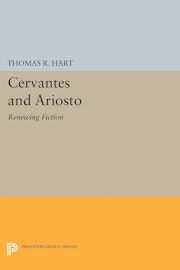
Thomas Hart examines Erich Auerbach's contention that Don Quixote is not a tragedy but a comedy and suggests that Auerbach's view was shaped by his reading of Ariosto's chivalric romance Orlando furioso. At the same time Hart argues...
-
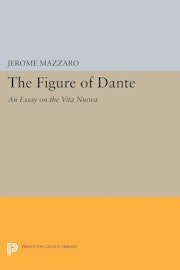
Jerome Mazzaro examines Dante's Vita Nuova as an artistic correlative to what Dante conceived as an image of himself. Specifically, he explores the structure of the work in relation to medieval views of memory, self, music, form, and...
-
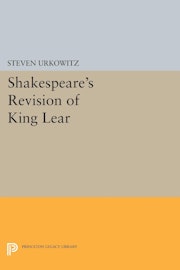
Of the three texts of King Lear--the Quarto version printed in 1608, the Folio edition of 1623, and the modern composite of these two early texts--it has been assumed that both the Quarto and Folio versions arc distortions of an...
-
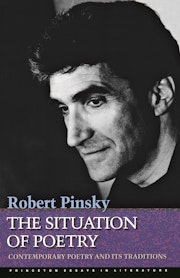
In this book Robert Pinsky writes about contemporary poetry as it reflects its modernist and Romantic past. He isolates certain persistent ideas about poetry's situation relative to life and focuses on the conflict the poet faces...
-
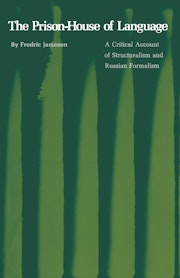
Fredric Jameson's survey of Structuralism and Russian Formalism is, at the same time, a critique of their basic methodology. He lays bare the presuppositions of the two movements, clarifying the relationship between the synchronic...